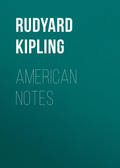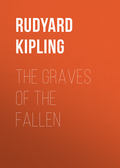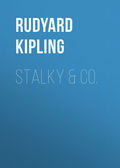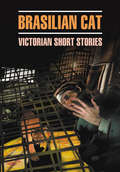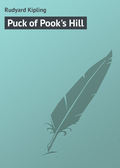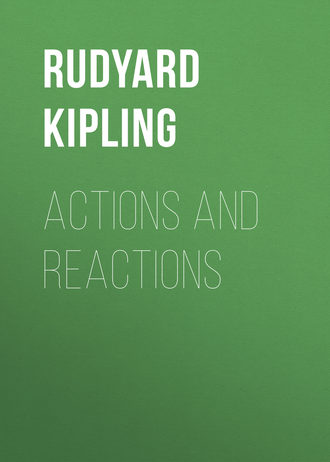
Редьярд Джозеф Киплинг
Actions and Reactions
For the Board:

Casualties
Week ending Dec. 18th.
SABLE ISLAND – Green single barbette-tower freighter, number indistinguishable, up-ended, and fore-tank pierced after collision, passed 300-ft. level Q P. as Dec. 15th. Watched to water and pithed by Mark Boat.
N. F. BANKS – Postal Packet 162 reports Halma freighter (Fowey – St. John’s) abandoned, leaking after weather, 46 151 N. 50 15’ W. Crew rescued by Planet liner Asteroid. Watched to water and pithed by Postal Packet, Dec. 14th.
KERGUELEN, MARK BOAT reports last call from Cymena freighter (Gayer Tong Huk & Co.) taking water and sinking in snow-storm South McDonald Islands. No wreckage recovered. Messages and wills of crew at all A. B. C. offices.
FEZZAN – T. A. D. freighter Ulema taken ground during Harmattan on Akakus Range. Under plates strained. Crew at Ghat where repairing Dec. 13th.
BISCAY, MARK BOAT reports Caducci (Valandingham Line) slightly spiked in western gorge Point de Benasdue. Passengers transferred Andorra (Fulton Line). Barcelona Mark Boat salving cargo Dec. 12th.
ASCENSION, MARE BOAT – Wreck of unknown racing-plane, Parden rudder, wire-stiffened xylonite vans, and Harliss engine-seating, sighted and salved 7 20’ S. 18 41’ W. Dec. 15th. Photos at all A. B. C. offices.
Missing
No answer to General Call having been received during the last week from following overdues, they are posted as missing:
Atlantis, W.17630. Canton – Valparaiso
Audhumla W. 889. Stockholm – Odessa
Berenice, W. 2206… Riga – Vladivostock
Draw, E. 446.. Coventry – Pontes
Arenas Tontine, E. 5068. C. Wrath – Ungava
Wu-Sung, E. 41776.. Hankow – Lobito Bay
General Call (all Mark Boats) out for:
Jane Eyre, W. 6990. Port Rupert – City of Mexico Santander, W. 6514.. Gobi Desert – Manila Y. Edmundsun, E. 9690.. Kandahar – Fiume
Broke for Obstruction, and Quitting Levels
VALKYRIE (racing plane), A. J. Hartley owner, New York (twice warned).
GEISHA (racing plane), S. van Cott owner, Philadelphia
(twice warned).
MARVEL of PERU (racing plane), J. X. Peixoto owner, Rio de
Janeiro (twice warned). For the Board:

NOTES
High-Level Sleet
The Northern weather so far shows no sign of improvement. From all quarters come complaints of the unusual prevalence of sleet at the higher levels. Racing planes and digs alike have suffered severely – the former from ‘unequal deposits of half-frozen slush on their vans (and only those who have “held up” a badly balanced plane in a cross-wind know what that means), and the latter from loaded bows and snow-cased bodies. As a consequence, the Northern and North-western upper levels have been practically abandoned, and the high fliers have returned to the ignoble security of the Three, Five, and Six hundred foot levels. But there remain a few undaunted sun-hunters who, in spite of frozen stays and ice-jammed connecting-rods, still haunt the blue empyrean.
Bat-Boat Racing
The scandals of the past few years have at last moved the yachting world to concerted action in regard to “bat” boat racing. We have been treated to the spectacle of what are practically keeled racing-planes driven a clear five foot or more above the water, and only eased down to touch their so-called “native element” as they near the line. Judges and starters have been conveniently blind to this absurdity, but the public demonstration off St. Catherine’s Light at the Autumn Regattas has borne ample, if tardy, fruit. In the future the “bat” is to be a boat, and the long-unheeded demand of the true sportsman for “no daylight under mid-keel in smooth water” is in a fair way to be conceded. The new rule severely restricts plane area and lift alike. The gas compartments are permitted both fore and aft, as in the old type, but the water-ballast central tank is rendered obligatory. These things work, if not for perfection, at least for the evolution of a sane and wholesome waterborne cruiser. The type of rudder is unaffected by the new rules, so we may expect to see the Long-Davidson make (the patent on which has just expired) come largely into use henceforward, though the strain on the sternpost in turning at speeds over forty miles an hour is admittedly very severe. But bat-boat racing has a great future before it.
Crete and the A. B. C
The story of the recent Cretan crisis, as told in the A. B. C. Monthly Report, is not without humour. Till the 25th October Crete, as all our planet knows, was the sole surviving European repository of “autonomous institutions,” “local self-government,” and the rest of the archaic lumber devised in the past for the confusion of human affairs. She has lived practically on the tourist traffic attracted by her annual pageants of Parliaments, Boards, Municipal Councils, etc., etc. Last summer the islanders grew wearied, as their premier explained, of “playing at being savages for pennies,” and proceeded to pull down all the landing-towers on the island and shut off general communication till such time as the A. B. C. should annex them. For side-splitting comedy we would refer our readers to the correspondence between the Board of Control and the Cretan premier during the “war.” However, all’s well that ends well. The A. B. C. have taken over the administration of Crete on normal lines; and tourists must go elsewhere to witness the “debates,” “resolutions,” and “popular movements” of the old days. The only people to suffer will be the Board of Control, which is grievously overworked already. It is easy enough to condemn the Cretans for their laziness; but when one recalls the large, prosperous, and presumably public-spirited communities which during the last few years have deliberately thrown themselves into the hands of the A. B. C., one, cannot be too hard upon St. Paul’s old friends.
CORRESPONDENCE
Skylarking on the Equator
To THE EDITOR: Only last week, while crossing the Equator (W. 26-15), I became aware of a furious and irregular cannonading some fifteen or twenty knots S. 4 E. Descending to the 500 ft. level, I found a party of Transylvanian tourists engaged in exploding scores of the largest pattern atmospheric bombs (A. B. C. standard) and, in the intervals of their pleasing labours, firing bow and stern smoke-ring swivels. This orgie – I can give it no other name – went on for at least two hours, and naturally produced violent electric derangements. My compasses, of course, were thrown out, my bow was struck twice, and I received two brisk shocks from the lower platform-rail. On remonstrating, I was told that these “professors” were engaged in scientific experiments. The extent of their “scientific” knowledge, may be judged by the fact that they expected to produce (I give their own words) “a little blue sky” if “they went on long enough.” This in the heart of the Doldrums at 450 feet! I have no objection to any amount of blue sky in its proper place (it can be found at the 4000 level for practically twelve months out of the year), but I submit, with all deference to the educational needs of Transylvania, that “skylarking” in the centre of a main-travelled road where, at the best of times, electricity literally drips off one’s stanchions and screw blades, is unnecessary. When my friends had finished, the road was seared, and blown, and pitted with unequal pressure layers, spirals, vortices, and readjustments for at least an hour. I pitched badly twice in an upward rush – solely due to these diabolical throw-downs – that came near to wrecking my propeller. Equatorial work at low levels is trying enough in all conscience without the added terrors of scientific hooliganism in the Doldrums.
Rhyl. J. VINCENT MATHEN
[We entirely sympathize with Professor Mathen’s views, but till the Board sees fit to further regulate the Southern areas in which scientific experiments may be conducted, we shall always be exposed to the risk which our correspondent describes. Unfortunately, a chimera bombinating in a vacuum is, nowadays, only too capable of producing secondary causes. – Editor.]
Answers to Correspondents
VIGILANS – The Laws of Auroral Derangements are still imperfectly understood. Any overheated motor may of course “seize” without warning; but so many complaints have reached us of accidents similar to yours while shooting the Aurora that we are inclined to believe with Lavalle that the upper strata of the Aurora Borealis are practically one big electric “leak,” and that the paralysis of your engines was due to complete magnetization of all metallic parts. Low-flying planes often “glue up” when near the Magnetic Pole, and there is no reason in science why the same disability should not be experienced at higher levels when the Auroras are “delivering” strongly.
INDIGNANT – On your own showing, you were not under control. That you could not hoist the necessary N. U. C. lights on approaching a traffic-lane because your electrics had short-circuited is a misfortune which might befall any one. The A. B. C., being responsible for the planet’s traffic, cannot, however, make allowance for this kind of misfortune. A reference to the Code will show that you were fined on the lower scale.
PLANISTON – (1) The Five Thousand Kilometre (overland) was won last year by L. V. Rautsch; R. M. Rautsch, his brother, in the same week pulling off the Ten Thousand (oversee). R. M.‘s average worked out at a fraction over 500 kilometres per hour, thus constituting a record. (2) Theoretically, there is no limit to the lift of a dirigible. For commercial and practical purposes 15,000 tons is accepted as the most manageable.
PATERFAMILIAS – None whatever. He is liable for direct damage both to your chimneys and any collateral damage caused by fall of bricks into garden, etc., etc. Bodily inconvenience and mental anguish may be included, but the average courts are not, as a rule, swayed by sentiment. If you can prove that his grapnel removed any portion of your roof, you had better rest your case on decoverture of domicile (see Parkins v. Duboulay). We sympathize with your position, but the night of the 14th was stormy and confused, and – you may have to anchor on a stranger’s chimney yourself some night. Verbum sap!
ALDEBARAN – (1) war, as a paying concern, ceased in 1987. (2) The Convention of London expressly reserves to every nation the right of waging war so long as it does not interfere with the traffic and all that implies. (3) The A. B. C. was constituted in 1949.
L. M. P. – (1) Keep her full head-on at half power, taking advantage of the lulls to speed up and creep into it. She will strain much less this way than in quartering across a gale. (2) Nothing is to be gained by reversing into a following gale, and there is always risk of a turnover. (3) The formulae for stun’sle brakes are uniformly unreliable, and will continue to be so as long as air is compressible.
PEGAMOID – (1) Personally we prefer glass or flux compounds to any other material for winter work nose-caps as being absolutely non-hygroscopic. (2) We cannot recommend any particular make.
PULMONAR – (1) For the symptoms you describe, try the Gobi Desert Sanatoria. The low levels of most of the Saharan Sanatoria are against them except at the outset of the disease. (2) We do not recommend boarding-houses or hotels in this column.
BEGINNER – On still days the air above a large inhabited city being slightly warmer – i.e., thinner – than the atmosphere of the surrounding country, a plane drops a little on entering the rarefied area, precisely as a ship sinks a little in fresh water. Hence the phenomena of “jolt” and your “inexplicable collisions” with factory chimneys. In air, as on earth, it is safest to fly high.
EMERGENCY – There is only one rule of the road in air, earth, and water. Do you want the firmament to yourself?
PICCIOLA – Both Poles have been overdone in Art and Literature. Leave them to Science for the next twenty years. You did not send a stamp with your verses.
NORTH NIGERIA – The Mark Boat was within her right in warning you off the Reserve. The shadow of a low-flying dirigible scares the game. You can buy all the photos you need at Sokoto.
NEW ERA – It is not etiquette to overcross an A. B. C. official’s boat without asking permission. He is one of the body responsible for the planet’s traffic, and for that reason must not be interfered with. You, presumably, are out on your own business or pleasure, and must leave him alone. For humanity’s sake don’t try to be “democratic.”
EXCORIATED – All inflators chafe sooner or later. You must go on till your skin hardens by practice. Meantime vaseline.
REVIEW
The Life of Xavier Lavalle
(Reviewed by Rene Talland. Ecole Aeronautique, Paris)
Ten years ago Lavalle, “that imperturbable dreamer of the heavens,” as Lazareff hailed him, gathered together the fruits of a lifetime’s labour, and gave it, with well-justified contempt, to a world bound hand and foot to Barald’s Theory of Vertices and “compensating electric nodes.” “They shall see,” he wrote – in that immortal postscript to The Heart of the Cyclone – “the Laws whose existence they derided written in fire beneath them.”
“But even here,” he continues, “there is no finality. Better a thousand times my conclusions should be discredited than that my dead name should lie across the threshold of the temple of Science – a bar to further inquiry.”
So died Lavalle – a prince of the Powers of the Air, and even at his funeral Cellier jested at “him who had gone to discover the secrets of the Aurora Borealis.”
If I choose thus to be banal, it is only to remind you that Collier’s theories are today as exploded as the ludicrous deductions of the Spanish school. In the place of their fugitive and warring dreams we have, definitely, Lavalle’s Law of the Cyclone which he surprised in darkness and cold at the foot of the overarching throne of the Aurora Borealis. It is there that I, intent on my own investigations, have passed and re-passed a hundred times the worn leonine face, white as the snow beneath him, furrowed with wrinkles like the seams and gashes upon the North Cape; the nervous hand, integrally a part of the mechanism of his flighter; and above all, the wonderful lambent eyes turned to the zenith.
“Master,” I would cry as I moved respectfully beneath him, “what is it you seek today?” and always the answer, clear and without doubt, from above: “The old secret, my son!”
The immense egotism of youth forced me on my own path, but (cry of the human always!) had I known – if I had known – I would many times have bartered my poor laurels for the privilege, such as Tinsley and Herrera possess, of having aided him in his monumental researches.
It is to the filial piety of Victor Lavalle that we owe the two volumes consecrated to the ground-life of his father, so full of the holy intimacies of the domestic hearth. Once returned from the abysms of the utter North to that little house upon the outskirts of Meudon, it was not the philosopher, the daring observer, the man of iron energy that imposed himself on his family, but a fat and even plaintive jester, a farceur incarnate and kindly, the co-equal of his children, and, it must be written, not seldom the comic despair of Madame Lavalle, who, as she writes five years after the marriage, to her venerable mother, found “in this unequalled intellect whose name I bear the abandon of a large and very untidy boy.” Here is her letter:
“Xavier returned from I do not know where at midnight, absorbed in calculations on the eternal question of his Aurora – la belle Aurore, whom I begin to hate. Instead of anchoring, – I had set out the guide-light above our roof, so he had but to descend and fasten the plane – he wandered, profoundly distracted, above the town with his anchor down! Figure to yourself, dear mother, it is the roof of the mayor’s house that the grapnel first engages! That I do not regret, for the mayor’s wife and I are not sympathetic; but when Xavier uproots my pet araucaria and bears it across the garden into the conservatory I protest at the top of my voice. Little Victor in his night-clothes runs to the window, enormously amused at the parabolic flight without reason, for it is too dark to see the grapnel, of my prized tree. The Mayor of Meudon, thunders at our door in the name of the Law, demanding, I suppose, my husband’s head. Here is the conversation through the megaphone – Xavier is two hundred feet above us:
“‘Mons. Lavalle, descend and make reparation for outrage of domicile. Descend, Mons. Lavalle!’
“No one answers.
“‘Xavier Lavalle, in the name of the Law, descend and submit to process for outrage of domicile.’
“Xavier, roused from his calculations, comprehending only the last words: ‘Outrage of domicile? My dear mayor, who is the man that has corrupted thy Julie?’
“The mayor, furious, ‘Xavier Lavalle – ’
“Xavier, interrupting: ‘I have not that felicity. I am only a dealer in cyclones!’
“My faith, he raised one then! All Meudon attended in the streets, and my Xavier, after a long time comprehending what he had done, excused himself in a thousand apologies. At last the reconciliation was effected in our house over a supper at two in the morning – Julie in a wonderful costume of compromises, and I have her and the mayor pacified in bed in the blue room.”
And on the next day, while the mayor rebuilds his roof, her Xavier departs anew for the Aurora Borealis, there to commence his life’s work. M. Victor Lavalle tells us of that historic collision (en plane) on the flank of Hecla between Herrera, then a pillar of the Spanish school, and the man destined to confute his theories and lead him intellectually captive. Even through the years, the immense laugh of Lavalle as he sustains the Spaniard’s wrecked plane, and cries: “Courage! I shall not fall till I have found Truth, and I hold you fast!” rings like the call of trumpets. This is that Lavalle whom the world, immersed in speculations of immediate gain, did not know nor suspect – the Lavalle whom they adjudged to the last a pedant and a theorist.
The human, as apart from the scientific, side (developed in his own volumes) of his epoch-making discoveries is marked with a simplicity, clarity, and good sense beyond praise. I would specially refer such as doubt the sustaining influence of ancestral faith upon character and will to the eleventh and nineteenth chapters, in which are contained the opening and consummation of the Tellurionical Records extending over nine years. Of their tremendous significance be sure that the modest house at Meudon knew as little as that the Records would one day be the planet’s standard in all official meteorology. It was enough for them that their Xavier – this son, this father, this husband – ascended periodically to commune with powers, it might be angelic, beyond their comprehension, and that they united daily in prayers for his safety.
“Pray for me,” he says upon the eve of each of his excursions, and returning, with an equal simplicity, he renders thanks “after supper in the little room where he kept his barometers.”
To the last Lavalle was a Catholic of the old school, accepting – he who had looked into the very heart of the lightnings – the dogmas of papal infallibility, of absolution, of confession – of relics great and small. Marvellous – enviable contradiction!
The completion of the Tellurionical Records closed what Lavalle himself was pleased to call the theoretical side of his labours – labours from which the youngest and least impressionable planeur might well have shrunk. He had traced through cold and heat, across the deeps of the oceans, with instruments of his own invention, over the inhospitable heart of the polar ice and the sterile visage of the deserts, league by league, patiently, unweariedly, remorselessly, from their ever-shifting cradle under the magnetic pole to their exalted death-bed in the utmost ether of the upper atmosphere each one of the Isoconical Tellurions Lavalle’s Curves, as we call them today. He had disentangled the nodes of their intersections, assigning to each its regulated period of flux and reflux. Thus equipped, he summons Herrera and Tinsley, his pupils, to the final demonstration as calmly as though he were ordering his flighter for some mid-day journey to Marseilles.
“I have proved my thesis,” he writes. “It remains now only that you should witness the proof. We go to Manila to-morrow. A cyclone will form off the Pescadores S. 17 E. in four days, and will reach its maximum intensity twenty-seven hours after inception. It is there I will show you the Truth.”
A letter heretofore unpublished from Herrera to Madame Lavalle tells us how the Master’s prophecy was verified.
I will not destroy its simplicity or its significance by any attempt to quote. Note well, though, that Herrera’s preoccupation throughout that day and night of superhuman strain is always for the Master’s bodily health and comfort.
“At such a time,” he writes, “I forced the Master to take the broth”; or “I made him put on the fur coat as you told me.” Nor is Tinsley (see pp. 184, 85) less concerned. He prepares the nourishment. He cooks eternally, imperturbably, suspended in the chaos of which the Master interprets the meaning. Tinsley, bowed down with the laurels of both hemispheres, raises himself to yet nobler heights in his capacity of a devoted chef. It is almost unbelievable! And yet men write of the Master as cold, aloof, self-contained. Such characters do not elicit the joyous and unswerving devotion which Lavalle commanded throughout life. Truly, we have changed very little in the course of the ages! The secrets of earth and sky and the links that bind them, we felicitate ourselves we are on the road to discover; but our neighbours’ heart and mind we misread, we misjudge, we condemn now as ever. Let all, then, who love a man read these most human, tender, and wise volumes.












